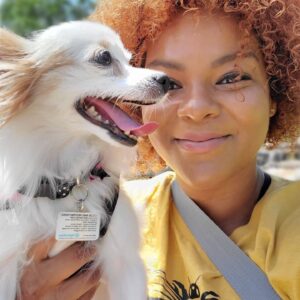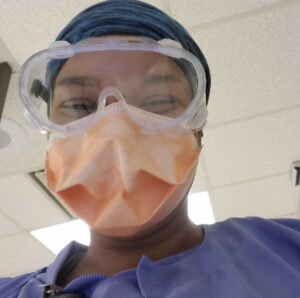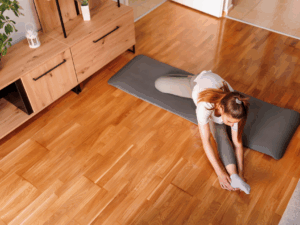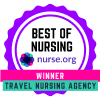How to Be Safe As a Traveler (Follow These Tips)
You’re ready to head off on your own and start the exciting adventure of being a healthcare traveler! Only a few years ago, Chelsie was in that exact situation. During her years on the road, she learned a thing or two about staying safe as a traveler, specifically as a solo female traveler.
Chelsie is now settled in South Carolina (love will make you do crazy things) and enjoys being part of TNAA’s Clinical Services team. Like all of us at TNAA, she is thrilled you’ve started this new venture, but before you hit the road, she’s sharing her safe travel tips for you to use on your trek, on the job, and while exploring.
View this post on Instagram
Road Trip Travel Safety Tips
Sometimes you’re going 100 miles from home, and sometimes you’re hopping several states for your next assignment. Whichever the case, Chelsie has a few travel safety tips that you’ll want to remember.
Tip 1: Keep your loved ones updated on your location. Yes, that means texting them when you stop for gas or grab a meal. Let them know your ETA to your final destination and when you arrive. Providing frequent updates will give them peace of mind, but it will also create a timeline of where you are and when you were there in case something happens.
Not great at sending updates? Use a location-sharing app to simplify the process for you. Some traveler favorites include Find My Friends for iPhone users, Life360, or enabling location sharing on Google Maps.
Tip 2: When you make stops, do it during daylight hours at very busy, public places with lots of cameras. If it feels like a sketchy place, go with that gut feeling and leave.
“One thing I do at truck stops that some people don’t think about is I show my face at every camera,” Chelsie said, adding she always wears an outfit that stands out when she travels. “You don’t want to make a scene, but if anyone was looking for you, you want to be easy to point out.”
Tip 3: “Limit your surprises,” Chelsie said. That means knowing what cities you want to stop in, knowing what the weather is like, and knowing who to call if you have car trouble. Being prepared can keep you safe in unfortunate situations.
Finding a Safe Place to Stay
You’ll call a new city ‘home’ for a few months, and the last thing you want to worry about after a long day is if you’re in a safe housing situation.
Tip 1: Look up the housing market before you apply for a position. You don’t want to say yes to a dream assignment only to learn that you have very limited housing options nearby. So, do your research by looking up the city, suburbs, and neighborhoods on Google Maps and check out the street view. Utilize Facebook healthcare traveler groups, like The Gypsy Nurse’s Travel Nurse Network, to get recommendations from others on good places to stay.
Tip 2: Chelsie’s favorite safe travel tip for finding accommodations is to reach out to your TNAA housing team. TNAA’s housing team members are industry experts who keep tabs on the market. With TNAA, your housing per diem is all your own – our team just helps you find options that fit your budget.
“Finding a place to live in a city that you’ve never been to can be overwhelming,” Chelsie said. “When I started traveling, I stuck to TNAA’s housing for help. They know what the area is like, the prices, and lots of places will cut deals with the agency, which makes that accommodation more affordable to you.”
Safety Tips for Traveling Alone

Nurses and allied health professionals travel in all stages of life, and that sometimes means traveling solo. Chelsie started her journey single and knows part of the fun of a traveling career is making those cross-country connections. She encourages you to get out and meet new people, but be smart about it.
Tip 1: Meet in a public area and don’t get in the car of someone you just met. You don’t want to be stuck in someone else’s vehicle when you want to get out of a date. Using your own transportation, like your vehicle or a rideshare app, allows you to get out of a bad situation easier.
Tip 2: Keep the information that you share limited. This new stranger doesn’t have to know where you’re living or what your living situation is. Even if you have a good feeling about them, don’t offer up every detail of your life.
“Sometimes people are really nice, but the friends they share information with are awful,” Chelsie said. And if you’re getting into details you’re not ready to share, redirect the conversation.
Tip 3: Share your location with a loved one and check in with them periodically throughout the date.
Safety Tips When Exploring Outdoors
Chelsie’s travel nurse career gave her opportunities to hike in Arizona, enjoy Missouri in the spring, and spend the summer in Maryland. Seeing the countryside is a definite perk of the lifestyle, but you’ll need to take safety precautions when traveling and exploring the great outdoors.
Tip 1: Chelsie’s first safe travel tip for exploring – take an easy trail that many others use. You’ll still get to enjoy the landscape, but there will be plenty of witnesses nearby if you need help. If you want to do something harder, hire a professional to teach you what to know about the area.
Tip 2: Read the warning signs and know what to do if you’re in a dangerous situation. For instance, if you’re walking on a trail with wild animals, look up what you’re supposed to do if confronted by one (and also know what you’ll do if your pet is on the hike with you).
Tip 3: Keep hydrated and bring plenty of snacks.
Tip 4: Stay in contact with someone, and let them know where you are. This tip is on repeat, and for good reason! Chelsie adds taking pictures on the hike can serve as a timeline of where you are when you share them with family and can be used to help you find your way if you get lost.
Safety On the Job

Your nursing license is your gateway to jobs, so you’ll want to ensure you aren’t jeopardizing it. If you feel uncomfortable with an assignment, here’s what you should do.
Tip 1: Sit down and ask yourself, “Is what I am being asked to do outside of my scope of capabilities, or can I do it but I don’t want to?” If it’s the latter, do what you can do one step at a time. Ask questions if you need to better understand a situation, delegate tasks when your workload is too much, and allow yourself time to document correctly and concisely.
Tip 2: If the situation is unsafe, immediately talk to the unit manager or supervisor. Let them know you don’t feel comfortable with what you’re being asked to do.
Tip 3: Let TNAA’s Clinical Services team know the situation. Our team is filled with nurses who have worked or continue to work at the bedside, so they have likely been in your scenario or know someone who has and can coach you on what to do.
TNAA’s Clinical Services Team Supports All Travelers
Chelsie’s safe travel tips cover many topics, but she’s here to let you know that TNAA’s Clinical Services department has even more to provide. With TNAA, you have access to an experienced team of nurses who are in the business of supporting travelers. They can help you study for tests and prepare for interviews, can talk you through difficult days, and can help you stay on track.
Ready to travel with a company that supports you? Start your TNAA application today.








